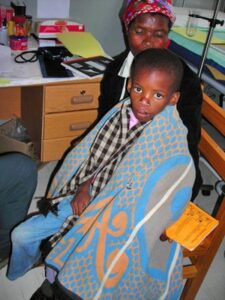Is Healthcare a Global Human Rights Issue?

 A true Enlightenment is when we no longer ignore poverty or trample the rights of others. Being sick while poor is a devastating situation that hundreds of millions of people around the world endure through no fault of their own. Having little decent or equitable access to quality healthcare facilities with affordable treatments, they suffer and face premature death. The late Harvard professor of global health and social medicine, Paul Farmer, was one of the pioneers and advocates of global healthcare as a human right – not a luxury or a lucky destiny based on where one is born. ‘Medical racism’ is when the medical services and medication for certain poor communities and countries, particularly African countries, are not as available as in opulent and well-resourced areas. According to Farmer, the poor and sick have been deprived of their basic human rights (Pathologies of Power 2004, and To Repair the World 2013). (See also the Netflix documentary Bending the Arc, 2017).
A true Enlightenment is when we no longer ignore poverty or trample the rights of others. Being sick while poor is a devastating situation that hundreds of millions of people around the world endure through no fault of their own. Having little decent or equitable access to quality healthcare facilities with affordable treatments, they suffer and face premature death. The late Harvard professor of global health and social medicine, Paul Farmer, was one of the pioneers and advocates of global healthcare as a human right – not a luxury or a lucky destiny based on where one is born. ‘Medical racism’ is when the medical services and medication for certain poor communities and countries, particularly African countries, are not as available as in opulent and well-resourced areas. According to Farmer, the poor and sick have been deprived of their basic human rights (Pathologies of Power 2004, and To Repair the World 2013). (See also the Netflix documentary Bending the Arc, 2017).
If we as a team of sympathetic human family members become empathically conscious of their situation, we can act to make their right to healthcare a priority, with a creative global solution.
A commitment to preventing the unnecessary suffering of others globally can become a new tenet and an essential principle of the Second Enlightenment. It also means preventing the repetition of the failures from our past errors. Affordable global healthcare is absolutely possible if we believe in it and show the will to harness new and existing resources. We have the medical knowledge of, and treatment for, many curable diseases, and we have the means to mobilize our resources for the wellbeing of the unprivileged people. We have to care courageously and face down the power structures that claim it’s not possible.
We also have to believe and show through actions that every human life is of equal value, around the world. Can we honestly say that we believe, deep down, that is true? Does the world operate in such a way that every human life is equally valued – not valued for what they ‘produce’ or what country they were born in, but simply by virtue of being a member of the human family? If we can’t or won’t make new policies to serve all people, we must ask ourselves: Why not?
 What can we do? We can shift global resources to where they will help people live decent lives more equally. Anyone who says there are no such resources simply needs to look at countries’ military budgets. We can start by eliminating and redirecting these massive military budgets and eliminate spending on our political elites and nationalist propagandas so that we can globally allocate enough resources for people’s health into a global healthcare fund. The cost of this global healthcare could also be covered by the internationalized resources fund. (see Can We Internationalize the Earth’s Resources for All? ) and its management would have to be a global council, perhaps representatives from various countries’ ministries of peace.
What can we do? We can shift global resources to where they will help people live decent lives more equally. Anyone who says there are no such resources simply needs to look at countries’ military budgets. We can start by eliminating and redirecting these massive military budgets and eliminate spending on our political elites and nationalist propagandas so that we can globally allocate enough resources for people’s health into a global healthcare fund. The cost of this global healthcare could also be covered by the internationalized resources fund. (see Can We Internationalize the Earth’s Resources for All? ) and its management would have to be a global council, perhaps representatives from various countries’ ministries of peace.
This is not the work of a single country. It truly requires an Enlightenment attitude of global compassion and commitment – this would be the indication that we are a mature species, as we claim to be.
The true supportive defense of poor people is when we come to their aid during the hopeless period of their life, stricken with illness and being destitute. Individual volunteers and organizations can do only so much, and they have done much to serve people around the world for decades. But a global problem requires a global effort. Providing systematic healthcare to all people globally should become a legal and ethical and joyful obligation, not a charitable choice out of pity.
